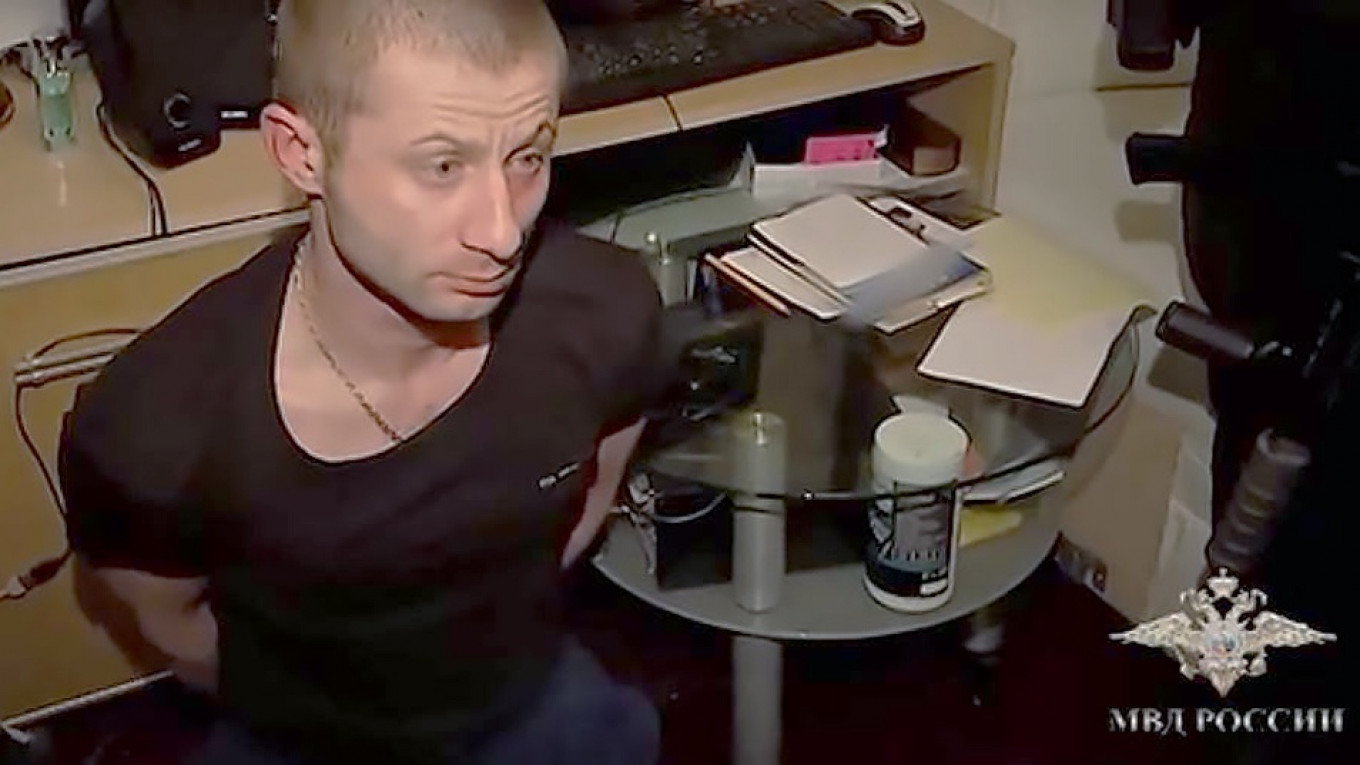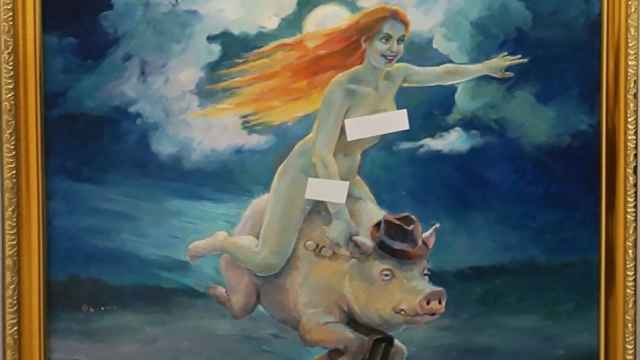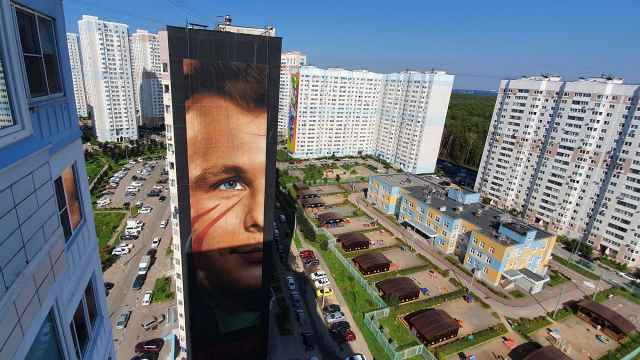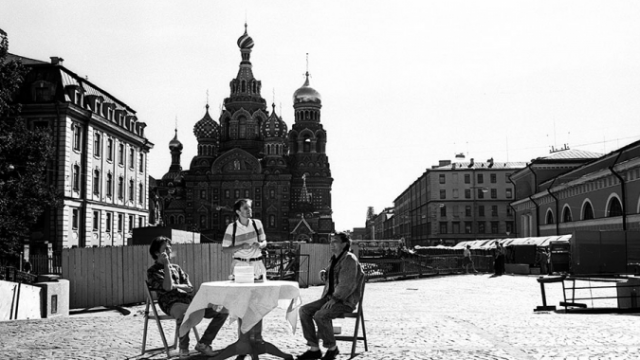Update: Chuprikov was sentenced to three years in a maximum-security penal colony on Sept. 25 after the court found him guilty of stealing the painting, Interfax reported.
The suspect in one of the most brazen art heists in recent history has confessed to having stolen prominent artist Arkhip Kuindzhi’s painting over the weekend to pay for his debts, Russian media have reported.
Kuindzhi’s 1908 “Ai Petri, Crimea” was briefly stolen from Moscow’s Tretyakov Gallery on Sunday before police recovered it in a basement on the outskirts of the city. The suspect, identified as Crimean native Denis Chuprikov, 32, initially said he did not remember what had happened that day.
Citing the investigation, Russia’s Kommersant newspaper reported that Chuprikov had acknowledged the crime after police showed him surveillance video of the heist, which shows how a suspect casually lifts the painting off the wall and strolls past visitors.
“Chuprikov confessed to the theft, saying that he had decided on it spontaneously because of debts,” Kommersant reported Monday, citing unnamed sources.
Police are looking for possible accomplices in what they are treating as a pre-planned heist of an object of special cultural value, a crime that carries a jail term of up to 15 years.
“Ai Petri, Crimea", a mountain scene, is worth around $1 million, state television said, though it was insured for only around $200,000. Chuprikov reportedly has a criminal record, including charges of drug possession and police disobedience pressed in the last few months.
Police said that the artwork had been put up on sale on a popular online marketplace for a mere 2.5 million rubles ($37,000).
"In a rating of the most stupid crimes of the 21st century, he has grounds to deserve an honorable mention,” Vladislav Kononov, a Culture Ministry official, was cited as saying.
Reuters contributed reporting to this article.
A Message from The Moscow Times:
Dear readers,
We are facing unprecedented challenges. Russia's Prosecutor General's Office has designated The Moscow Times as an "undesirable" organization, criminalizing our work and putting our staff at risk of prosecution. This follows our earlier unjust labeling as a "foreign agent."
These actions are direct attempts to silence independent journalism in Russia. The authorities claim our work "discredits the decisions of the Russian leadership." We see things differently: we strive to provide accurate, unbiased reporting on Russia.
We, the journalists of The Moscow Times, refuse to be silenced. But to continue our work, we need your help.
Your support, no matter how small, makes a world of difference. If you can, please support us monthly starting from just $2. It's quick to set up, and every contribution makes a significant impact.
By supporting The Moscow Times, you're defending open, independent journalism in the face of repression. Thank you for standing with us.
Remind me later.






